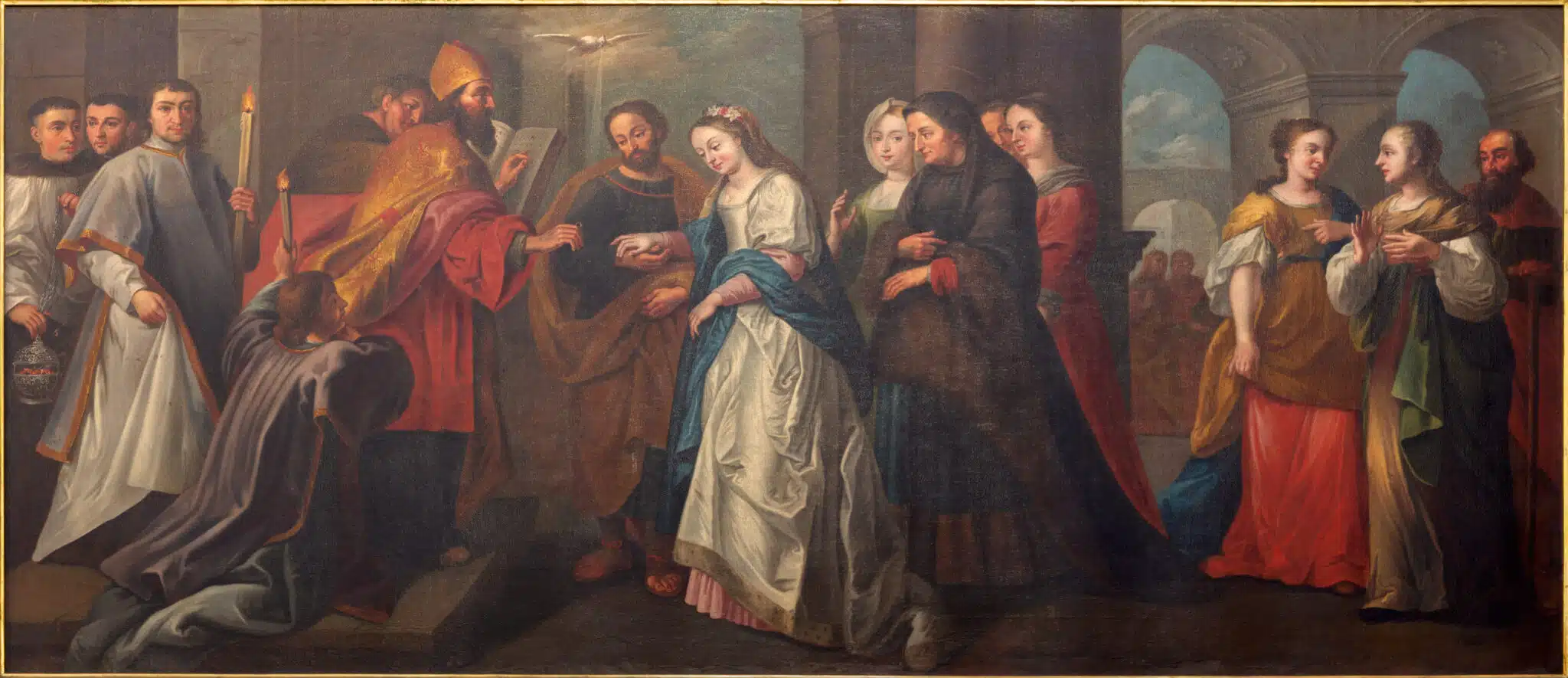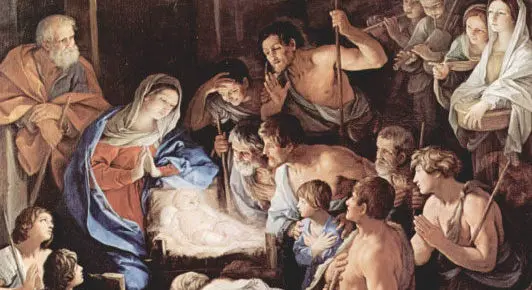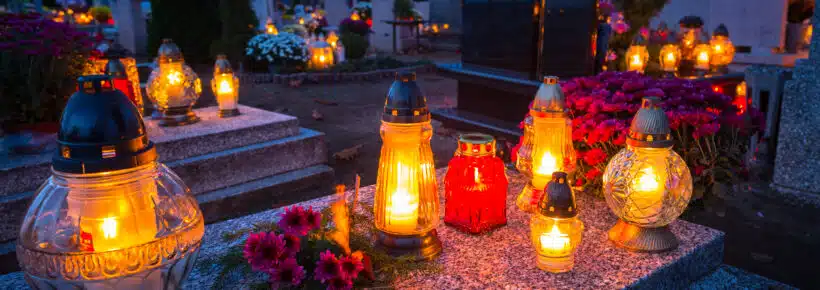One of the most exciting and rewarding things in our lives can also be one of the most intimidating and perplexing. We’re talking about dating. But not just any kind of dating. Catholic dating.
With such a wide range of people out there and so many different ideas about this subject, it can be difficult to navigate the dating scene, especially for young people.
But when done right and in a chaste manner, dating can be holy and sacred. Indeed, that is what it is meant to be. For truly, the ultimate end of getting to know someone and building a relationship is to find a spouse.
Chaste Dating
We all have a vocation in life. A vocation is more than a profession; it’s a calling. For many, their vocation is as a married person. For others, it’s as a priest or consecrated individual. Some choose to stay single.
But for those who want to get and stay married, finding the perfect spouse—for them—has probably been somewhere in the back of their minds since they were teenagers.
Dating can be hard. Finding someone to date can be even harder. But then finding someone who shares your Catholic values can be brutal. Sometimes it looks like the pool of eligible people is growing smaller by the day. But fear not. There are single faithful Catholics who are looking for a spouse, and they are in the same boat that you are.
Dating as a Teen
We often get the question, “Should teens date?” While that decision is up to the teen and the parent, there are some guidelines that the teen should follow if they do decide to date.
First, every single person, regardless of age, should understand the virtue of chastity.
According to the Catechism of the Catholic Church, chastity “means the successful integration of sexuality within the person and thus the inner unity of man in his bodily and spiritual being.” It goes on to say that this virtue “involves the integrity of the person and the integrality of the gift.”
Note the use of the word “gift.” Our bodies are gifts given to us by God. As such, we must take care of and nourish them—physically and spiritually. Just as it’s unhealthy for us to eat a steady diet of doughnuts and pizza, it’s unhealthy for us to abuse our sexuality.
Our sexuality is a gift, and when expressed within a marriage, it unites the couple in a loving embrace that truly elevates the act. But when we give our bodies to just anyone, this elevation is lost. We lose the love and end up just using others for our pleasure. For a short while, that might make us happy, but it’s a kind of happiness that doesn’t last. In fact, those who indiscriminately go from partner to partner often experience feelings of regret and unfulfillment.
That’s why it’s important to understand the true meaning of chastity and to save the gift of your body for your spouse.
An article on the USCCB website articulates this well when it advises us to not see chastity as “just a bunch of rules” that keep us from expressing feelings of attraction and love for someone outside the marriage. It states that the quote from the Catechism mentioned above “means that although chastity does require us to say ‘no’ to some things (including sex outside of marriage), it is much more than a simple refusal of immediate pleasures. It is a ‘yes’ to authentic love, which, though challenging, is in accord with who we are, helps us become who we were created to be, and leads us to our ultimate happiness.”
The USCCB goes on to say:
Chastity is about how to love well as a man or as a woman. Because as human beings we’re both body and soul, chastity isn’t just about physical actions; it’s about how we love in every aspect of our lives. It affects not only what we do or don’t do, but also what we say, think, wear, watch, listen to, read, and so on. It includes respecting our sexuality in these and all areas—for our sake and for the sake of others. Everyone is called to live chastely whether they’re single, married, or religious.
Teaching teens to think of themselves as a gift to another goes a long way to helping them value that gift and to treating it well.
That said, it’s natural for teenagers to want to date. It’s normal for anyone to want the attention and the affection they receive when having fun with someone they’re attracted to and can laugh and talk and have fun with. As long as teens abide by some guidelines, they can have a lot of fun and begin to determine the kind of future spouse they want.
Going out as a group or partaking in fun outings, like grabbing a cup of coffee, going bowling, playing miniature golf, or simply taking a walk on a nice day, can be great ways for young people to get to know each other. Instituting boundaries is important, as it’s easy to succumb to temptations when you go to someone’s house and the parents aren’t home.
HLI’s president, Fr. Shenan J. Boquet, articulated this in a recent podcast about discerning marriage. He encourages parents to pray for their children to help them discern their vocation. He advises parents to be good models of a faithful husband or wife. He reminds viewers that marriage is a vocation and that, especially in today’s world where we mostly see the secular version of marriage, parents must model what it’s like to live a vocation. Parents should teach kids about the sacredness of marriage—how it’s both faithful and fruitful. And finally, he says that we must remember that it’s the job of spouses to help their spouse and children to reach heaven. As he states, “Home is the domestic church where God is the center.”
Always keeping God at the center of our homes and marriages is vital.
Catholic Dating as a Young Adult
As we grow older, we can almost feel that biological clock ticking. For many, it’s natural to want to get married and have children. And often our bodies and minds tell us the sooner the better.
You’ve graduated college, or maybe you started work right after high school. So now you’re “out there.” You know you want a spouse, but the problem lies in finding that person.
Songs, Hallmark movies, and social media want you to believe in the concept of soulmates—that there is one specific person for you and your job is to find that person. But that sure makes it difficult, doesn’t it? Out of the approximately four billion partners for you, if you had only one soulmate, he or she might be in Japan or Finland or Mozambique. So if you believe in soulmates, ditch that notion right now. There are many, many compatible people for you, and probably right in your city.
The best first step you can take is to pray. Talk to God and ask Him what is good for you. Sit in Adoration and listen to His voice. Ask Him for the grace to be patient and to be open to what’s really important in a relationship.
Then have a talk with yourself about what you want. You have likely known many different types of people and already have an idea about what you want in a spouse. Make a mental list—or a physical one if you want. Include the important and nonnegotiable qualities, such as shared faith, someone who values and respects you for who you are, and someone who is honest and reliable.
Then include the negotiable characteristics that may or may not be so important. Are you looking for someone who’s funny, who’s mechanically inclined, who likes to read, or who’s into sports?
Be careful to not fall into the trap of “endlessly discerning.” Once you have prayed and discerned, ask for peace in your decision.
Where Do I Find a Potential Spouse?
Many women lament that there are “no good guys” out there. Likewise, men often say the same thing about women. Before you begin dating, remember that you have to not only love yourself but be living a virtuous life where you’re striving for sainthood. If you don’t already, model your life after some of the saints. Women, look to Mary, to St. Gianna Molla, or to St. Elizabeth Ann Seton as examples of faithful and loving wives. Men, look to Christ, to St. Joseph, or to St. Thomas More. All of these people are faithful examples of how to be a good spouse.

Once you are secure in the love of yourself, you can feel ready to love a potential spouse. A great place to find that future spouse is at your church. Chances are that your future husband or wife will not randomly approach you after Mass and ask you to grab a cup of coffee or a drink. You’re going to have to get involved in parish activities.
Lots of parishes have groups for young adults. Some even have what’s called Theology on Tap at local bars where a deacon or other speaker will give a talk and then the group members will have a chance to mingle after.
Joining a committee at your parish will also help you get to know people. Most parishes have committees that help the poor, that make meals for the sick, that take Communion to those who can’t make it to Mass, and numerous other types of groups.
You could also try to meet people on dating apps, but only sign up for those that have good reputations for making matches, such as Catholic Match and eHarmony. Beware of apps that are mainly for people looking for hookups.
Meetup groups are groups of people who share a common interest in your town who then meet up for various events. There’s a Meetup group for pretty much any interest or hobby you can imagine. And if there isn’t one, you can create one! Take a few minutes to search the Meetup site and determine if there’s anything interesting to you.
Once you begin to meet people, start building friendships. It will be easy to determine how you feel about a person after spending some time in a group setting. Decide if you want to see that person again. In the podcast, Fr. Boquet advises people on dates to talk about your values and the role of faith in your life. After you spend a little more time together, talk about the desire for children. Ask yourself if this is a person who could or would pray with you.
As you begin to get to know someone and think that there might be a future, here are some things to think about:
- Does this person make me a better version of myself? Do I make this person a better version of him/herself?
- Does this person encourage me in my faith or draw me away from God?
- Do they value me and my beliefs?
- Do they care about whether I get to heaven?
- Do they support the goals I have in life?
- Do I trust this person?
In a FOCUS video about preparing for marriage, Fr. Mike Schmitz talks about having a covenant mentality rather than a contract mentality. He explains that a contract mentality is “you do something for me, I do something for you.” If a marriage is based on that belief, it will not survive. He reminds viewers that marriage is a sacrament and thus a covenant, or unconditional exchange of persons, between two people. Each member of the couple gives him or herself to the other and doesn’t keep score about what they have each done. This is the basis for authentic love that will guide you through the good and the bad and through sickness and health.
Practical Advice
Worldly pressures regarding sexuality can be immense, so finding a potential spouse who values chastity as you do is crucial. Have frank discussions about boundaries. If the person is not willing to adhere to those boundaries, that person does not respect you and is not for you.
Enter the dating world with one question in mind, “Is this the person I want to marry?” If you answer no to this question, then don’t waste your time or the other person’s.
Always be honest about your feelings, and don’t play games. If you’re interested, communicate that. Tell the person you would like to get to know him/her more. If you’re not interested, express that too. It’s hard, but it’s kinder than leading the person along, and it’s better than ghosting, or ignoring, that person until they finally give up and go away.
Saintly Couples
There are many biblical or saintly couples who have served as phenomenal examples of how to be faithful spouses. Of course Mary and Joseph are one. But here are a few others:
- Anne and Joachim (Mary’s parents)
- Elizabeth and Zechariah (the parents of John the Baptist)
- Saints Louis Martin and Zélie Guérin (the parents of St. Therese of Lisieux)
Read their stories, reflect on their examples, then pray for their intercession. When we take time to read about how the saints lived their lives and then model ours after them, we understand how to care for a future spouse and how we should be cared for.
In all relationships, respect is crucial, and when both the man and woman respect each other’s faith and boundaries, and choose to share a life together, they will find that weathering life’s storms is much easier together.

Susan Ciancio has a BA in psychology and a BA in sociology from the University of Notre Dame, with an MA in liberal studies from Indiana University. Since 2003, she has worked as a professional editor and writer, editing both fiction and nonfiction books, magazine articles, blogs, educational lessons, professional materials, and website content. Fourteen of those years have been in the pro-life sector. Currently Susan writes weekly for HLI, edits for American Life League, and is the editor of its Celebrate Life Magazine. She also serves as executive editor for the Culture of Life Studies Program, an educational nonprofit program for k-12 students.









What about dating as a single parent? I’m no longer the right demographic for theology on tap (at least as a dating pool) and catholic match has been sadly disappointing. It’s a totally different ballgame out there post divorce/annulment and kids…
I am in the same boat. Catholic Match showed no one in my area except a few guys who were way too young. Other dating sites are okay to find nice guys, but finding a Catholic guy is hard. I pray and pray for a faithful Catholic man. I hear eharmony is really good and you can specify Catholic. I haven’t tried but its tempting. Try groups at your parish.
Dating is so hard today. I tried Catholic Match and there was no one in my town. I was about to give up when I saw these saints, so i will start a novcena. Thank you.